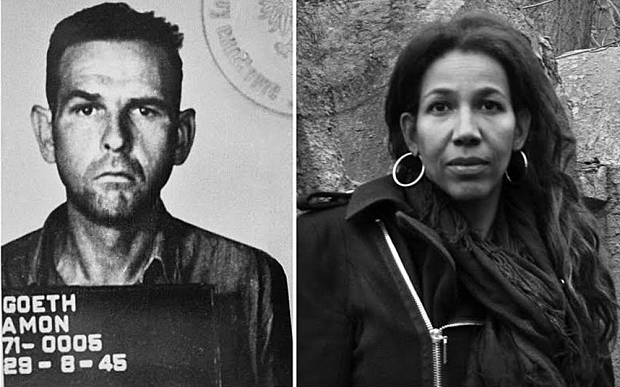Born in 1970, Jennifer Teege, was sent to an orphanage and has since then known little about her real parents or family.
While Jennifer had wondered about her background all through her childhood and as she grew up, it wasn’t until 30 years later that Jennifer found out, perhaps more than she had bargained for, about her family’s history.
Jennifer’s mother was German and in 1969 she had a short relationship with a man from Nigeria. Because of social constraints at the time, as soon as Jennifer was born she was sent away to an orphanage to be put up for adoption as soon as she was old enough.
Sometimes her mother and grandmother would visit her at the orphanage, until she was officially adopted at the age of seven.
Jennifer was at Hamburg library reviewing a variety of books, when she came across a photo of a woman dressed in a summer dress that looked exactly like her maternal grandmother, Ruth Irene. Then as Jennifer turned back to the book’s cover she realised the actual book had been written by her mother and the title was, ‘I have to love my father, right?’.
A complete and utter shock, Jennifer was nervous to read more because this book was obviously going to answer so many questions she had about her real family.
Nevertheless she had to find out. The book revealed that her maternal grandfather had been Amon Goeth, a member of the Nazi party and commander of the Plaszow concentration camp during World War Two.
Goeth had been known as the ‘Butcher of Plaszow’ and had killed many. He had worked his way up through the Nazi party and authorised the killing of 2000 Jews when Poland’s Krakow Ghetto had been cleared. He then went on to authorise the killing of as many as 12,000 Jews and prisoners as commander at Plaszow.
What made matters worse for Jennifer was that killing must have come easily to him, since he had trained his dogs to tear apart human bodies, and would ride around the camp in a white uniform on a white horse threatening prisoners along the way.
At the end of the war, Goeth was captured by Allied troops and put on trial in Poland. He was described by his prosecutors as ‘the modern incarnation of Satan’. It was Goeth who was brought to the movie screen in Spielberg’s Schindler’s List, played by Ralph Fiennes.
Upon reading her mother’s book Jennifer went on to do years of research into her father’s life and his actions during the war. The complete opposite of her grandfather, Jennifer had spent four years as a student in Israel during her teenage years and even learnt to speak Hebrew.
Jennifer desperately searched for a reason why her grandfather would act in the way he did. She thought that he must have experienced some trauma as a child. But when she watched a documentary about his life, she realised he had a perfectly normal life.
Even worse, Jennifer could find no evidence of regret or remorse from either her grandfather or grandmother. Goeth was sentenced to death by hanging after his trial, and as he was about to be killed he shouted Heil Hitler and gave the Nazi salute. Meanwhile, Jennifer’s grandmother lived by his side for the entire war at the concentration camp in Goeth’s villa.
The couple never married, but after the war Ruth took the surname Goeth, and which Jennifer held until she was adopted at the age of seven.
Ruth also met an unhappy ending as she committed suicide in 1983, with a picture of Goeth still on the wall above her bed, The Telegraph reports.
Reports from the camp state that Ruth would lie around for most of the day giving herself face masks and listening to music so that it would drown out the noise of gunshots.
Since discovering her family’s history, Jennifer has struggled to come to terms with those she is related to and has had to undergo substantial therapy. Nevertheless, she has gone on to have a good job in advertising and is married with two children.
Jennifer has written her own account of finding out about her family, and her journey to acceptance called ‘My Grandfather Would Have Shot Me’.
